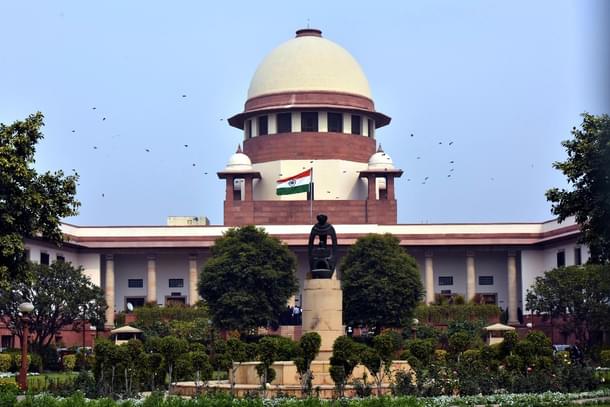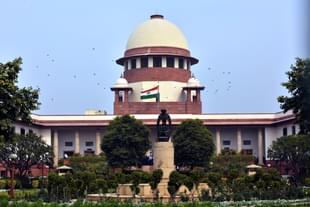News Headlines
Governor Can't Keep Bill Pending Indefinitely, Must Return It To Legislature If He Decides To Withhold Assent: Supreme Court
Swarajya Staff
Nov 24, 2023, 08:39 AM | Updated 08:39 AM IST
Save & read from anywhere!
Bookmark stories for easy access on any device or the Swarajya app.


The Supreme Court has emphasised that while the "Governor, as an unelected Head of the State, is entrusted with certain constitutional powers”, these powers "cannot be used to thwart the normal course of lawmaking” of the state legislature.
The Apex Court further ruled that a “Governor cannot be at liberty” to keep a “Bill pending indefinitely without any action whatsoever”.
The three-judge SC bench, consisting of Chief Justice of India D Y Chandrachud and Justices J B Pardiwala and Manoj Misra, noted that the main provision of Article 200 gives the Governor the authority to "withhold assent to the bill".
“In such an event, the Governor must mandatorily follow the course of action… of communicating to the State Legislature ‘as soon as possible’ a message warranting the reconsideration of the Bill," the Court said, Indian Express reported.
The bench made this clear in its judgment on a plea by the Punjab government against Governor Banwarilal Purohit who had kept pending the Bills sent to him by the state legislature - the detailed order on the 10 November ruling was uploaded on the Supreme Court website Thursday.
This ruling is important given that the governments of Tamil Nadu and Kerala too had moved court recently against the Governor’s inaction on Bills.
“The expression ‘as soon as possible’ is significant. It conveys a constitutional imperative of expedition. Failure to take a call and keeping a Bill duly passed for indeterminate periods is a course of action inconsistent with that expression. Constitutional language is not surplusage… The Constitution evidently contains this provision bearing in mind the importance which has been attached to the power of legislation which squarely lies in the domain of the state legislature. The Governor cannot be at liberty to keep the Bill pending indefinitely without any action whatsoever," the bench said.
The Governor, it said, is “a symbolic head and cannot withhold action on Bills passed by the State Legislature”.
According to the Court, failing to read the Governor’s power in Article 200 in this manner would mean that the “Governor as the unelected Head of State would be in a position to virtually veto the functioning of the legislative domain by a duly elected legislature by simply declaring that assent is withheld without any further recourse. Such a course of action would be contrary to fundamental principles of a constitutional democracy based on a Parliamentary pattern of governance”.
The court emphasized the importance of the Governor's role as a ceremonial Head of State, stating that the way this role is executed is crucial for protecting federalism, which has been held to be a basic structure of the Constitution
“The exercise of unbridled discretion in areas not entrusted to the discretion of the Governor risks walking roughshod over the working of a democratically elected government at the State. In a steady line of cases, this Court has strengthened the importance of institutions and their vitality to democratic functioning. Federalism and democracy, both parts of the basic structure, are inseparable. When one feature is diluted, it puts the other in peril. The tuning fork of democracy and federalism is vital to the realization of the fundamental freedoms and aspirations of our citizens. Whenever one prong of the tuning fork is harmed, it damages the apparatus of constitutional governance”, it said.
The court clarified that the Governor, in his role as a guiding statesman, could suggest reviewing the entire Bill or parts of it and could even propose possible amendments.
However, the final determination of whether or not to accept the Governor's advice as conveyed in his message is solely the prerogative of the legislature.





